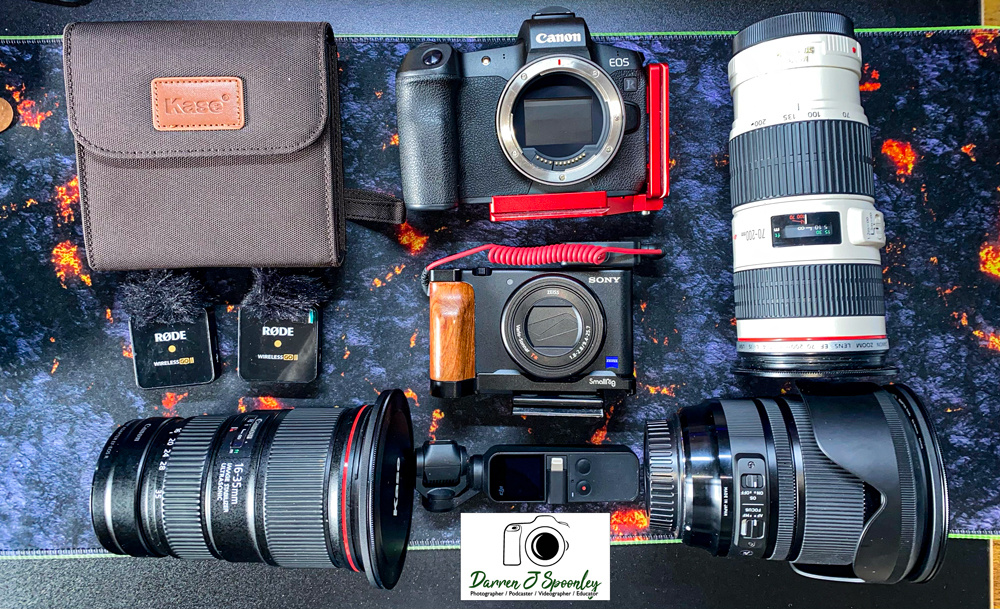Blog
Why Camera Gear is Essential for Serious Photographers: Invest in Quality
Why Camera Gear is Essential for Serious Photographers: Invest in Quality
Photography is more than just taking pictures – it’s about capturing moments, telling stories, and creating art. Whether you’re a professional photographer or an enthusiast looking to elevate your craft, investing in quality camera gear is crucial. The right equipment not only helps you take technically better photos but also enhances your ability to explore new creative possibilities. In this article, we will explore why camera gear is essential for serious photographers and how investing in high-quality equipment can transform your photography journey.
1. The Importance of Camera Gear for Serious Photography
For serious photographers, the gear they use goes beyond just a tool for capturing images. It becomes an extension of their creative vision, enabling them to push the boundaries of their craft and achieve the level of detail, sharpness, and versatility required for professional work. Here’s why camera gear matters:
1.1. Better Image Quality
The primary reason to invest in quality camera gear is to enhance the image quality of your photos. While skills and creativity are crucial, the camera and lenses you use play a significant role in how your images turn out. High-end cameras with larger sensors, superior lenses, and more advanced features allow you to capture finer details, improve sharpness, and enhance dynamic range, resulting in clearer, more vibrant photos.
For example, a professional DSLR or mirrorless camera with a full-frame sensor will provide superior image quality compared to an entry-level model with a crop sensor. Full-frame sensors capture more light and detail, resulting in more accurate colors, less noise, and better low-light performance, which is essential for serious photographers aiming for professional standards.
1.2. Greater Control Over Creative Expression
With high-quality camera gear, you gain more control over your creative process. For instance, premium lenses allow for precise control of depth of field, enabling you to achieve beautiful bokeh (background blur) in portraits or fine details in macro shots. Professional-grade cameras offer customizable settings like manual control of aperture, shutter speed, and ISO, allowing you to achieve the exact exposure and effect you want in any given situation.
Advanced camera features, such as autofocus systems with more focus points, allow you to track moving subjects accurately, which is invaluable for sports or wildlife photography. These features give you the creative freedom to experiment and capture images with a level of precision and detail that would be challenging with lower-quality gear.
1.3. Consistency and Reliability
As a serious photographer, you rely on your gear to perform consistently in various conditions, whether shooting in bright daylight or low-light environments. High-quality gear is designed for durability and reliability, ensuring that your camera and lenses can withstand the demands of professional use.
Investing in quality gear also means fewer issues with performance. For instance, high-end cameras are built with weather-sealing, meaning they can handle dust, rain, or extreme temperatures without malfunctioning. This is especially important for photographers working in challenging environments, such as outdoor, landscape, or event photographers.
 2. Key Camera Gear for Serious Photographers
2. Key Camera Gear for Serious Photographers
Now that we’ve discussed the importance of investing in quality gear, let’s break down the essential components of a serious photographer’s kit. These are the items you need to achieve the best possible results in your work.
2.1. Camera Body
The camera body is the heart of your photography gear. It houses the sensor, controls, and processing features that impact the overall quality of your images. When investing in a camera body, consider these factors:
- Sensor Size: Full-frame sensors are ideal for serious photographers because they capture more light and provide better image quality, especially in low-light conditions. Crop sensors are less expensive but may not offer the same level of detail or depth of field control.
- Autofocus System: A robust autofocus system with multiple focus points ensures that you can accurately capture fast-moving subjects, which is crucial for sports, wildlife, or action photography.
- Frame Rate: If you’re shooting fast-paced events or wildlife, a high frame rate (the number of frames per second the camera can shoot) will ensure you don’t miss key moments.
- Build Quality: Look for a camera body that is durable, weather-sealed, and ergonomic. This ensures that it will last through the rigors of professional use and feel comfortable during long shoots.
Popular options for serious photographers include the Canon EOS R5, Nikon Z9, Sony Alpha A7R IV, and Fujifilm GFX 100S.
2.2. Lenses
Lenses are arguably as important as the camera body, if not more so. A high-quality lens can significantly improve the sharpness, clarity, and overall aesthetic of your photos. Different types of lenses allow you to achieve various effects and control aspects like depth of field, focal length, and perspective. Some key lenses to consider are:
- Prime Lenses: These lenses have a fixed focal length (e.g., 50mm, 85mm) and are known for their exceptional sharpness and wide apertures, ideal for portrait and low-light photography.
- Zoom Lenses: These lenses offer flexibility by allowing you to zoom in and out without changing your position, making them ideal for event photography, travel, or wildlife.
- Macro Lenses: If you’re into capturing small details in nature or products, macro lenses allow you to photograph tiny subjects with exceptional detail.
- Wide-Angle Lenses: For landscape photographers, wide-angle lenses are essential for capturing expansive views and intricate details across a vast scene.
- Telephoto Lenses: For wildlife, sports, or portrait photographers, telephoto lenses allow you to shoot distant subjects with stunning detail, isolating them from the background.
Investing in high-quality lenses from reputable brands like Canon, Nikon, Sony, or Sigma ensures you capture sharp, detailed images, even in challenging lighting conditions.
2.3. Tripods and Stabilizers
A sturdy tripod is essential for long exposure shots, landscape photography, or capturing subjects in low light. It helps eliminate camera shake and ensures that your composition remains steady and consistent. Look for tripods with adjustable legs, lightweight materials, and a secure locking mechanism.
For dynamic or handheld shots, a gimbal stabilizer is a must-have for videographers and photographers who need smooth motion while shooting video or capturing action sequences. Gimbals help stabilize the camera, preventing shaky footage and ensuring smooth, cinematic shots.
2.4. Lighting Equipment
While natural light is a valuable tool for any photographer, having control over artificial lighting is essential for creating professional-quality images. A lighting setup with strobes, softboxes, and reflectors allows you to manipulate the light to suit your subject and mood.
- External Flash: Great for portrait photography or low-light situations, an external flash gives you more control over lighting than the built-in flash on your camera.
- Continuous Lighting: For studio work, continuous lights such as LED panels allow you to see how the light interacts with your subject in real time.
- Light Modifiers: Softboxes, diffusers, and umbrellas help soften and diffuse light, reducing harsh shadows and creating flattering light for portraits and product shots.
2.5. Memory Cards and Backup Solutions
High-quality memory cards are essential for storing your images safely. Choose cards with fast write speeds to ensure smooth shooting, especially when capturing high-resolution photos or videos. Additionally, investing in a reliable backup system, such as an external hard drive or cloud storage, is crucial for safeguarding your work.
3. The Long-Term Value of Quality Camera Gear
Investing in quality camera gear may seem expensive upfront, but it’s important to think of it as an investment in your craft and your future. The right gear not only produces better results but also improves your workflow, saving you time and frustration in the editing process. Here are some additional benefits of investing in quality gear:
3.1. Long-Term Durability
High-quality cameras and lenses are built to last, often with rugged construction and weather-sealing to handle demanding shoots. With proper care, professional gear can serve you for years, making it a better long-term investment compared to cheaper alternatives that might break down or need replacing more frequently.
3.2. Increased Efficiency
With better autofocus, faster shutter speeds, and superior image quality, you’ll be able to work more efficiently. The reliability and performance of high-end gear allow you to focus more on the creative aspects of photography rather than worrying about technical limitations.
3.3. Better Return on Investment
For photographers who generate income from their work, investing in top-tier gear can yield better returns. Higher-quality photos lead to better client satisfaction, more opportunities, and the potential to command higher rates for your services.
 4. Conclusion
4. Conclusion
For serious photographers, camera gear is much more than a set of tools – it’s the foundation of your art. Investing in high-quality equipment helps ensure that your images meet professional standards, gives you more creative control, and increases your reliability in challenging conditions. Whether you’re upgrading your camera body, investing in high-end lenses, or ensuring you have the right lighting and stabilization equipment, quality gear is essential for taking your photography to the next level. Remember, your gear should empower your creative vision and provide the performance and reliability you need to capture the perfect shot every time.


